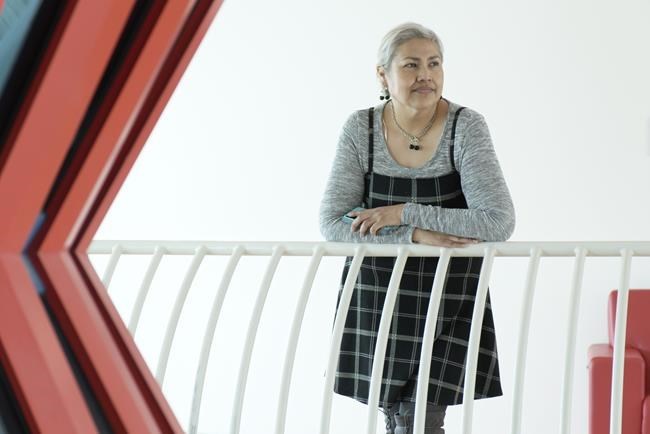OTTAWA — From "good riddance" to "don't unfriend us," independent publishers are expressing mixed feelings about Meta's decision to temporarily block news on Instagram and Facebook for some of its Canadian users.
The company said it's a response to the Liberal government's Bill C-18, which would require tech giants to pay publishers for linking to or otherwise repurposing news content.
Kerry Benjoe, president of Eagle Feather News Media in Saskatchewan, said she relies on Facebook to grow her newspaper's audience and ad revenue.
If Meta were to permanently block news, it would impact the way she does business.
Eagle Feather News is a monthly newspaper that distributes 10,000 copies to every First Nation in the province. Benjoe said her reach is restricted, considering the size of Saskatchewan, so she leans to social media.
"It's going to really limit the audience that I want to reach, and not just Indigenous people," Benjoe said in an interview regarding Meta's decision.
"It's really important for the rest of the public to hear these (Indigenous) stories and see all the good things happening in these communities that are so isolated from major urban settings."
Many local news publishers have popped up as a result of newsroom layoffs over the years, and each rely on social media in different ways to either grow their business or audience.
Darren Krause fully launched his online news site, LiveWire Calgary, about five years ago, after his employer Torstar shuttered its StarMetro newspaper chain, which offered free commuter papers.
The former managing editor of Metro Calgary built his business on filling the gaps in hyper-local news, and said he now has up to 100,000 page views per month, most of which is driven by Google searches and social media.
"Being an online news organization, the clicks generate cash," Krause said.
He said he's less concerned about Meta blocking news on Facebook than he is about Google blocking news — a test Google ran earlier this year that removed news links for less than four per cent of its Canadian users.
"At least 60 per cent of my news is generated by Google's search engine," Krause said. LiveWire Calgary is also part of the Google News Initiative that helps independent newsrooms grow.
"It's counterintuitive for them, because on one hand they're trying to support better, stronger local news, but they don't want to have to pay for it."
The online news bill could pass as early as this month. If it does, Meta and Google would be required to enter into agreements with news publishers to pay them for news content that appears on their sites if it helps the tech giants generate money.
Meta said it will comply by ending news on Facebook and Instagram all together. The WhatsApp and Messenger apps will not be affected. Google has also indicated that removing news could be an option.
The Office of the Parliamentary Budget Officer released a report last year that projected Bill C-18 will generate over $300 million annually. But the majority of that will likely to go to big Canadian broadcasters, leaving small independent publishers feeling like they'll be getting just a small crumble of the pie.
Will Pearson, co-publisher of Peterborough Currents, said he's opposed to C-18 because he won't benefit from it, and he believes publishers need to develop new ways to reach people that aren't mediated by tech companies.
He said it's time for media to say "good riddance" to Facebook. Still, he does wonder what misinformation and low-quality news sources would fill that vacuum where reliable sources once existed.
"I do think the relationship between news and social media is strained. The incentives are not aligned, and I wonder why the government and big media publishers are finding a solution to their budget crisis that locks them in that relationship when we're never going to control Facebook or whether they give us reach," he said.
Pearson, whose digital news site has 3,6000 newsletter subscriptions, said he's more focused on growing his business through subscriptions, newsletters and interacting with his community in person.
"Facebook says they don't need news," Pearson said. "I feel like we don't need Facebook."
This report by The Canadian Press was first published June 2, 2023.
Mickey Djuric, The Canadian Press



